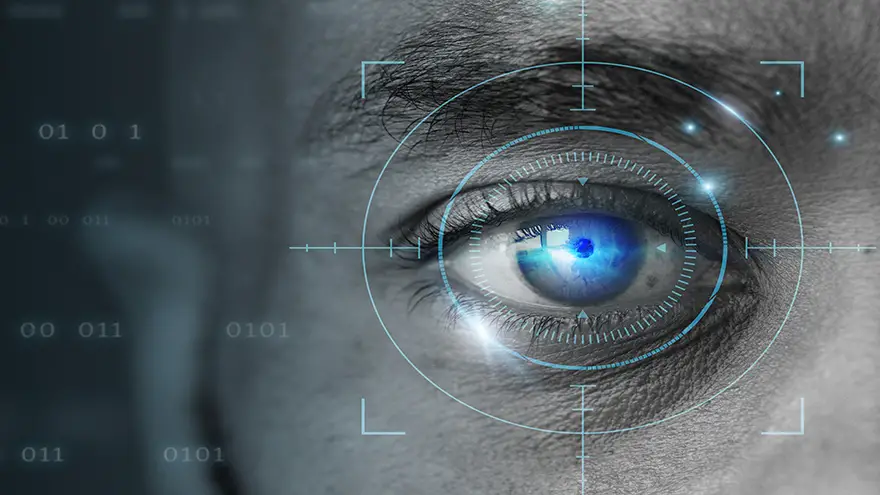With limited public disclosure, the UK government expands its web surveillance initiative, raising concerns about privacy and data protection.
In a discreet move, the UK government is quietly advancing a controversial surveillance program designed to capture and store the internet browsing histories of numerous individuals. Official reports and financial records indicate that the police have declared the testing phase of the “internet connection records” (ICRs) collection system successful, setting the stage for its potential nationwide implementation. If realized, this initiative would provide law enforcement with a potent tool for surveillance.
Critics argue that this system poses a severe intrusion into privacy and raises concerns about the government’s track record in safeguarding personal data. The lack of transparency surrounding the technology and its operations only adds to the apprehension, as authorities evade inquiries about the program.
The passage of the Investigatory Powers Act in late 2016 sparked controversy by granting extensive surveillance and hacking powers to law enforcement and intelligence agencies. While the law introduced regulations governing the activities and access of these entities, it faced widespread criticism due to its impact on personal privacy, earning it the nickname “Snooper’s Charter.”
Of particular contention was the creation of internet connection records (ICRs). Under this legislation, internet and phone service providers can be compelled, with the approval of a senior judge, to retain individuals’ browsing histories for a period of 12 months.
An ICR does not encompass a comprehensive list of all visited webpages; however, it can still unveil substantial information about online activities. For instance, an ICR could include records of accessing Edopedia.com but would not reveal specific articles read. It may consist of an individual’s IP address, customer number, date and time of information retrieval, and data transfer volumes. The UK government asserts that an internet connection record could indicate when someone accessed the EasyJet travel app on their phone but not disclose the manner in which the app was used.
“ICRs are highly intrusive and should be shielded from excessive retention by telecommunications operators and intelligence agencies,” states Nour Haidar, a lawyer and legal officer at Privacy International, a UK civil liberties organization actively challenging data collection and handling under the Investigatory Powers Act in court.
The development and implementation details surrounding ICRs remain largely undisclosed. When the Investigatory Powers Act was enacted, internet companies estimated that building the necessary systems to collect and store ICRs would take them several years. However, recent developments suggest progress may have been made. In February, the Home Office, responsible for security and policing in the UK, released a compulsory review of the Investigatory Powers Act’s performance thus far.
The review reveals that the UK’s National Crime Agency (NCA) conducted tests on the operational, functional, and technical aspects of ICRs, concluding that collecting these records yielded significant operational benefits. A small trial, focusing on websites hosting illegal images of children, identified 120 individuals accessing such content, with only four previously known to law enforcement through intelligence channels.
The existence of the ICR trial was first reported in March 2021, when scant details were available regarding its nature. The participating telecom companies remain undisclosed. The Home Office’s February report marks the first official acknowledgement of the trial’s efficacy for law enforcement, potentially paving the way for expanding the system nationwide. Moreover, the review raises the possibility of future legal modifications by stating that ICRs currently elude certain crucial investigations.
In May 2022, the Home Office issued a procurement notice, disclosing that work had commenced on creating a “national ICR service.” The notice, initially reported by the public sector technology publication PublicTechnology, highlights a budget of up to £2 million dedicated to developing a technical infrastructure granting law enforcement officials access to ICR data for investigations.
The contract for the technical system was awarded to Bae Systems, a defense firm, in July 2022. However, when pressed for further details, the Home Office declined to provide specific information, citing commercial interests and the need for confidentiality and security. Bae Systems also refrained from commenting on individual contracts due to similar reasons.
Responding to a Freedom of Information Act request, the Home Office refused to disclose the findings of an internal review on ICRs, citing grounds of national security and law enforcement. Despite these limitations on transparency, a spokesperson from the Home Office maintained that the UK possesses one of the most robust and transparent oversight mechanisms for personal data and privacy protection worldwide. Furthermore, the spokesperson confirmed that ongoing trials of ICRs are underway.
As the UK’s secretive web surveillance program gains momentum, concerns about privacy, data protection, and the potential for abuse of this powerful surveillance tool continue to grow. While the government asserts its commitment to oversight and transparency, the lack of public knowledge surrounding the development, implementation, and potential expansion of ICRs raises significant questions about the balance between national security and individual privacy rights in the digital age. The extent to which citizens’ online activities may be monitored and the safeguards in place to protect their data remain uncertain, making it crucial to closely monitor the evolution of this covert surveillance program.
